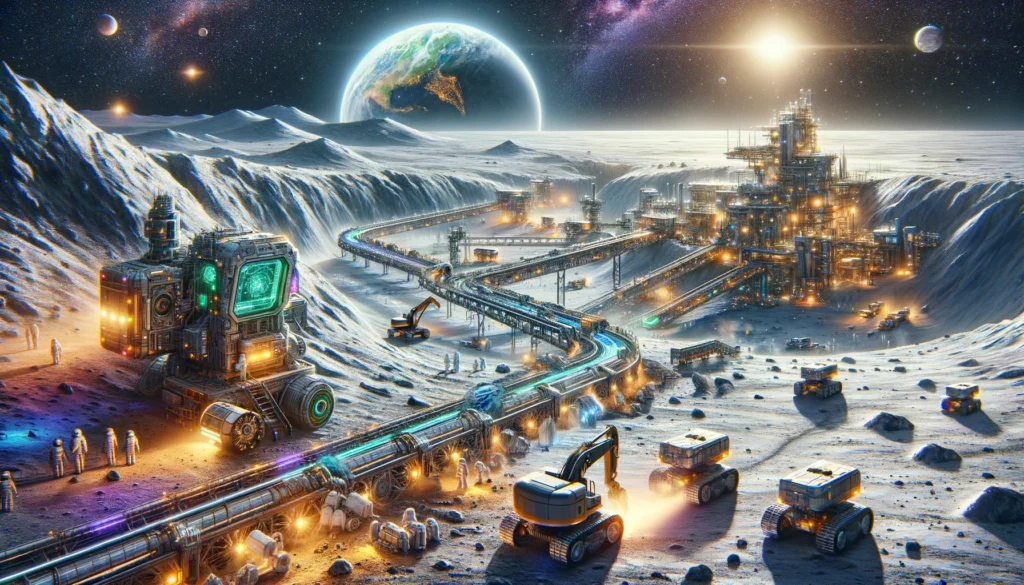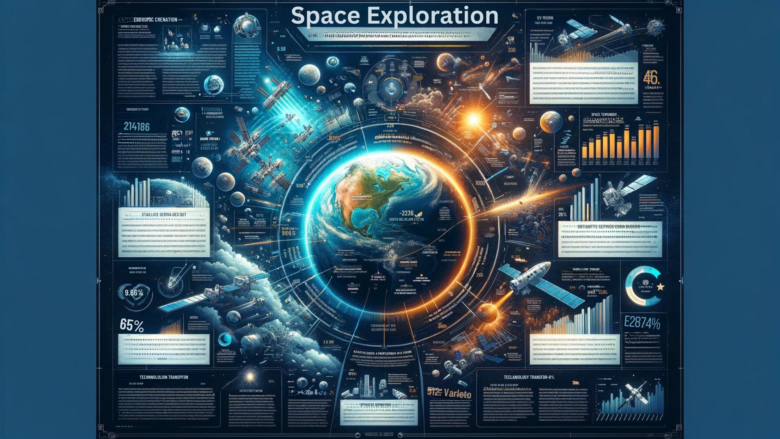As we continue our journey through the economics of space exploration, we shift our gaze from the investments and technological innovations discussed in Part 1 to the tangible and transformative economic returns that these endeavors yield. The cosmos not only offers us knowledge and wonder but also presents vast economic opportunities that can propel humanity into a future of prosperity and interstellar potential.
Direct Economic Returns
Job Creation: Fueling Industries and Innovation
The space sector has been a significant engine for job creation, generating roles across a spectrum of disciplines. From engineers and scientists working at NASA (National Aeronautics and Space Administration) and ISRO (Indian Space Research Organisation) to technicians and software developers in private space firms like SpaceX and Blue Origin, the industry supports a diverse workforce. These high-skilled jobs contribute to economic growth, driving innovation and attracting talent to the fields of science, technology, engineering, and mathematics (STEM).

Commercial Ventures: Opening New Frontiers
The emergence of the commercial space industry has introduced new revenue streams and business models. Satellite communications, Earth observation services, and the nascent space tourism sector exemplify how space can be not just a place of exploration but also a domain of economic activity. Companies are now looking beyond the Earth, envisioning lunar habitats and asteroid mining as future opportunities for expansion and investment.
Technology Transfer: From Space to Society
Technologies developed for space exploration often find their way into our daily lives. GPS (Global Positioning System) technology, improved medical imaging techniques, and advancements in materials science are just a few examples of how space research translates into societal benefits. The process of technology transfer from space missions to commercial applications fuels innovation across industries, creating new markets and enhancing quality of life.
Indirect Economic Returns
Innovation and Productivity: The Ripple Effect
The challenges of space exploration drive technological innovation, which in turn, boosts productivity in various sectors. For instance, advancements in robotics developed for space missions can enhance manufacturing processes on Earth, while innovations in life support systems for long-duration space travel might lead to more sustainable energy and recycling technologies.
Education and Workforce Development: Building the Future
Space exploration has a profound impact on education, inspiring generations to pursue careers in STEM fields. Programs and initiatives aimed at fostering a skilled workforce are crucial for maintaining a competitive edge in the global economy. By nurturing talent in science and technology, space exploration ensures a continuous supply of innovators ready to address the challenges of tomorrow.
Global Collaboration: Strengthening Bonds and Economies
International partnerships in space missions not only advance scientific and exploratory goals but also foster economic collaboration between countries. Joint projects like the International Space Station (ISS) exemplify how shared investments and objectives can lead to mutual economic benefits, promoting global trade and diplomacy.
Looking to the Future: The Economy of Tomorrow
As we gaze further into the horizon, the economic implications of space exploration broaden. The potential for mining resources from the Moon and asteroids, developing space-based solar power systems, and creating infrastructure in space opens up unprecedented opportunities for economic growth. These ventures, while still on the drawing board, hint at a future where space exploration is a significant contributor to the global economy.

Conclusion
The journey through the economic landscape of space exploration reveals a universe brimming with opportunities. From creating jobs and fostering innovation to inspiring global collaboration and future economic ventures, space exploration is not just an investment in reaching new frontiers but also in building a prosperous future for humanity on and beyond Earth.
Stay tuned for Part 3 of this series, where we will explore the untapped potential of off-Earth resources and the future trends that will shape our interstellar economic aspirations.
Author’s Note
Thank you for accompanying me on this exploration of the economic returns from space. It’s a topic that merges the vastness of space with the tangible benefits it brings to Earth’s economy and society. As we look forward to the concluding part of this series, I hope to ignite your curiosity and excitement for the potential that lies in the cosmos—not just for exploration but for economic opportunity and growth. Your engagement and thoughts are invaluable as we venture further into understanding space’s role in our shared future.
G.C., Ecosociosphere contributor.
References and Further Reading
- SpaceX: For insights into commercial space ventures and innovations. https://www.spacex.com
- NASA Technology Transfer Program: Learn about how NASA’s innovations translate into societal benefits. https://technology.nasa.gov
- The Space Foundation: Offers reports and data on the economic impact of the space industry. https://www.spacefoundation.org
- European Space Agency (ESA) – Business Applications: Showcases how space technology can be used in different industries. https://business.esa.int
These resources provide further insights into the economic dimensions of space exploration, offering a deeper understanding of how our ventures into space continue to shape economic and technological landscapes on Earth.





Comments
Thank you for your sharing. I am worried that I lack creative ideas. It is your article that makes me full of hope. Thank you. But, I have a question, can you help me?
Your point of view caught my eye and was very interesting. Thanks. I have a question for you.